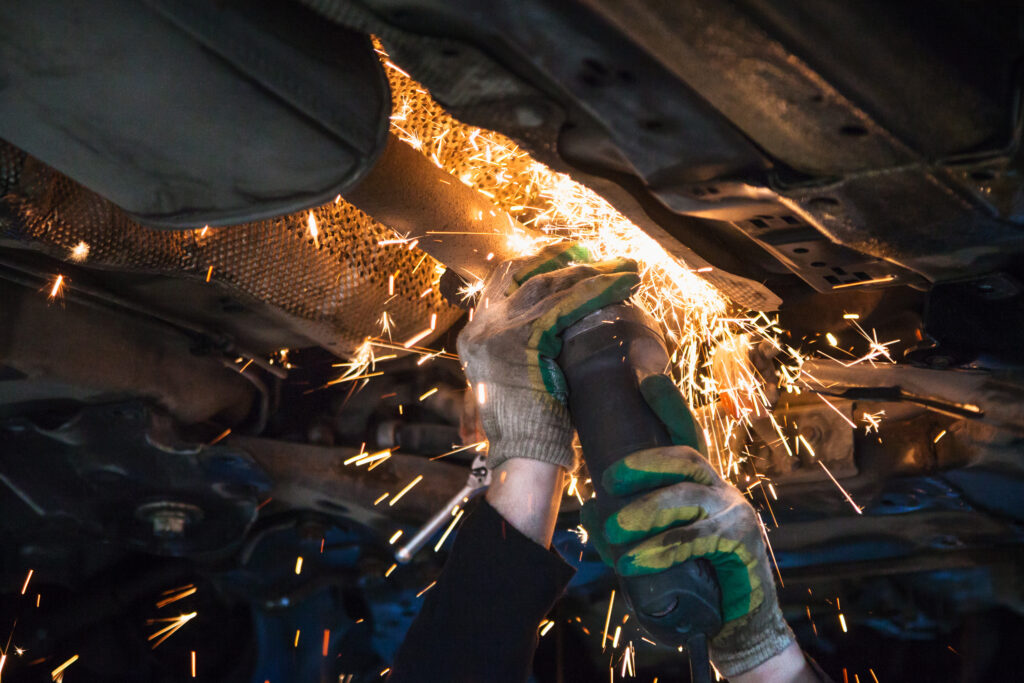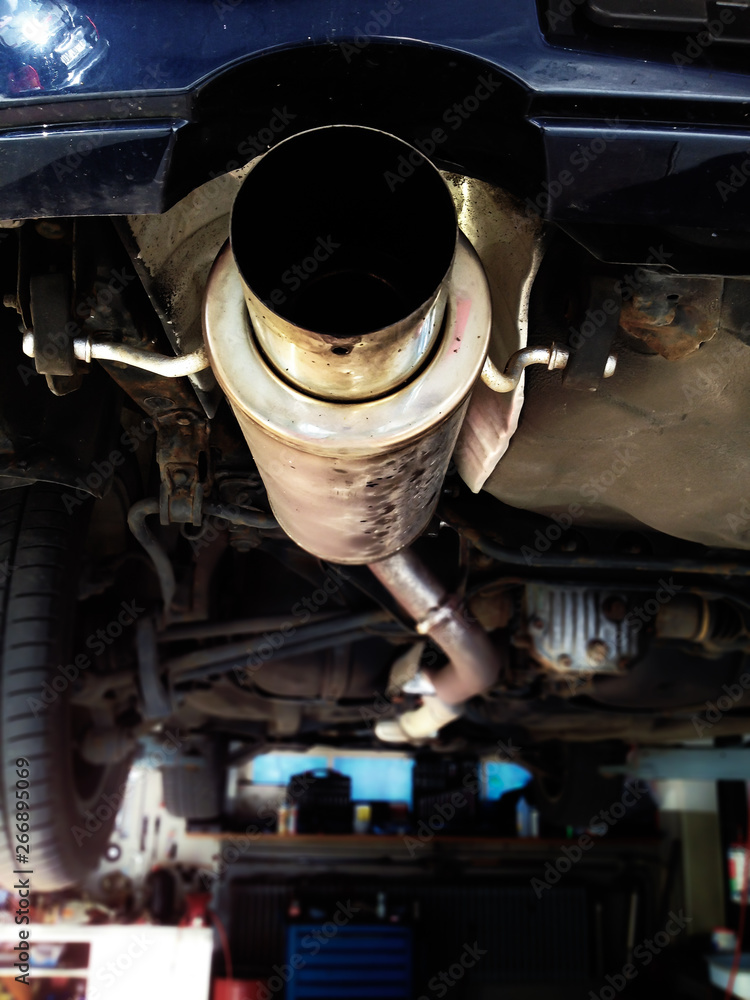Exhaust and DPF Repairs
Exhaust and DPF Repairs
Your exhaust has four main functions: to control noise, to direct exhaust fumes away from passengers, to improve the performance of the engine and to improve fuel consumption. Depending on the make and model of your vehicle and the number of engine valves it has, the layout of your vehicle exhaust system will vary. However, all exhausts work in the similar way to remove harmful exhaust gases from the engine which are produced while the engine is running.
Exhaust gases are collected from the cylinder head in the engine by an exhaust manifold. The exhaust manifold acts as a funnel, diverting exhaust gases from all cylinders of the engine then releases them through a single opening, often referred to as the front pipe.


All exhausts produce six gases as emissions; of the six, three are toxic (carbon monoxide, nitrogen oxide and nitrogen monoxide). Your exhaust emissions system is the only means of channelling away those noxious fumes.
All modern diesel cars are fitted with a Diesel Particulate Filter (DPF). Diesel engines burn fuel differently than petrol cars – a large amount of soot is produced in the process of combustion. This fine substance has the potential to harm people’s health and the environment and it is the DPF’s responsibility to destroy it before that happens. DPFs became mandatory in 2009, however, certain diesel cars had already been equipped with the technology.
While a DPF’s first job is to trap and hold onto harmful particulates, it needs to get rid of them too. The DPF does this by exposing them to very high temperatures, burning them and turning the particulates into harmless ash in a process called DPF regeneration.
The DPF starts regeneration in a couple of ways but both need the exhaust gases to get to around 500 degrees Celsius. As a result, diesel cars are not particularly suitable for people who only do short journeys because the exhaust does not get hot enough for regeneration to occur, meaning soot builds up and the DPF can’t get rid of it. Eventually, the soot will block the DPF completely and cause engine problems like reduced fuel-efficiency and misfiring.
In many cases, the first sign that there may be a problem with your exhaust or DPF will be a warning light on your dash. Other signs there may be a problem include a lack of performance, change of exhaust tone or a strange exhaust smell. At Lodge Automotive, we have a wealth of expertise in all exhaust and DPF repairs. If you think there is a problem, please call 07973 767829 or complete the form on our contact us page.

